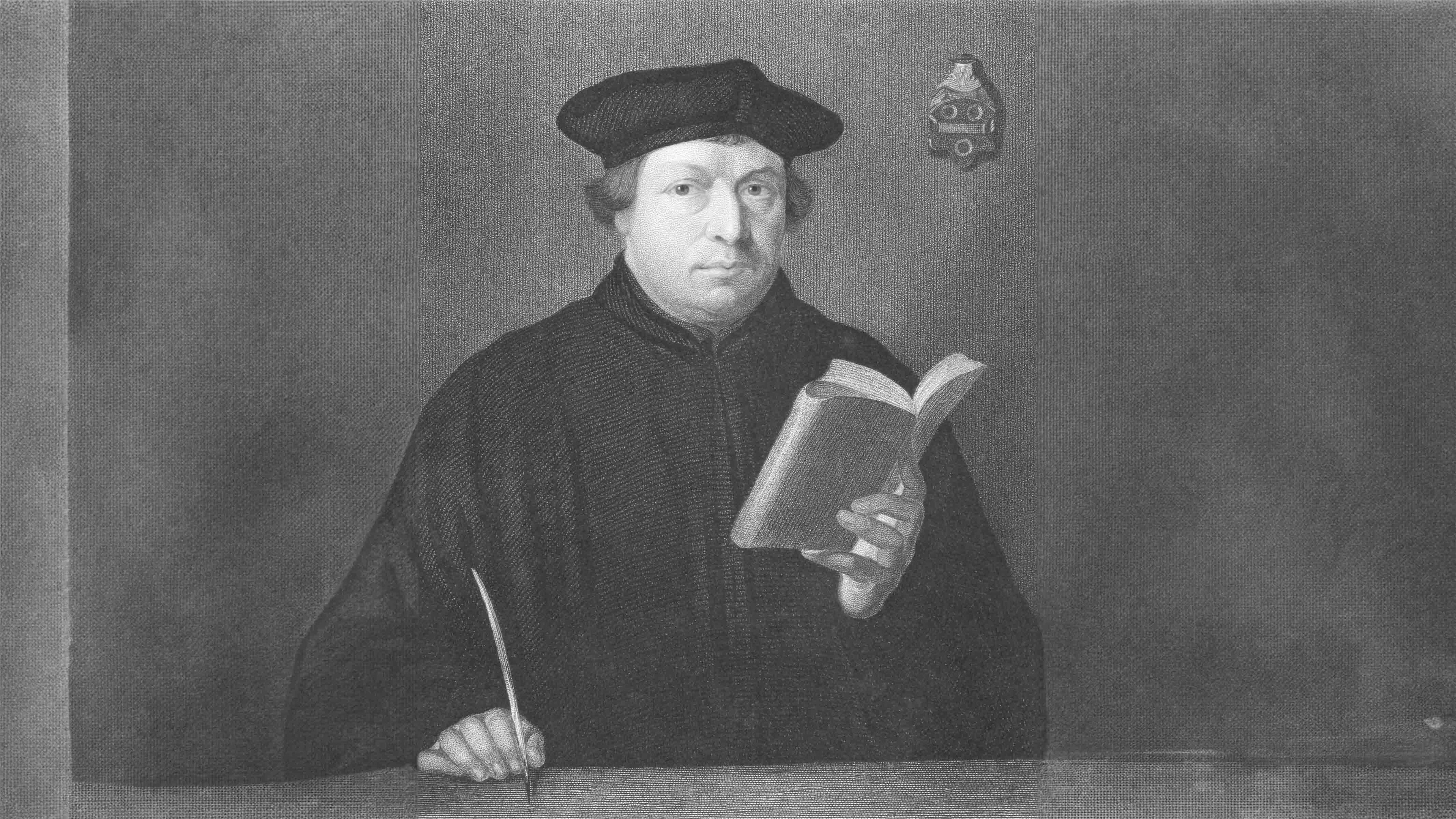
Back to blog
Education
May 22, 2024
Martin Luther on Shaping Culture
The gospel transforms culture. When the gospel changes individuals, there is a ripple effect, transforming everything in the culture. The gospel not only brings forgiveness, but also influences literature, life, science, and the humanities. Without the gospel, nations are lost and in great darkness. While there may be pockets of practical wisdom and culture, lasting cultural impact only occurs through salvation. Martin Luther serves as an example of how the gospel renews culture. In the Reformation, when he recovered the great freedom of the gospel, it led to a massive cultural awakening in Germany and throughout Europe.
New Saint Andrews College looks to Martin Luther’s example in its mission to graduate leaders who shape culture. Luther lived from 1483 to 1546 and was the central figure in the Reformation in Europe. Many others, such as Philip Melancthon, Martin Bucer, and John Calvin, worked alongside him in the Reformation. Luther’s central focus was proclaiming the gospel as laid out in scripture. Through his work in preaching the gospel, Luther also revitalized German culture in language, education, and work.
In the Reformation, when Luther recovered the great freedom of the gospel, it led to a massive cultural awakening in Germany and throughout Europe.
After the Roman church excommunicated Luther in 1521, one of his first tasks was translating the Bible into German so that every German could read it. This translation work unified and invigorated Germany because people could read and discuss the Bible in a common language. Before this time, Germany had many different dialects depending on the region. One scholar describes Luther’s work as “a simple, lucid, rhythmic German,” free of the problems of many dialects. Later, joking about his own pivotal role in the Reformation, he said, “The Word did it all.” Through Luther’s translation, the scripture was unleashed on the whole nation, from peasant to prince. We see the impact of his work in our own time because the Bible has been translated into many different languages around the world. NSA follows Luther’s example and instills in students the importance of studying scripture through theology courses in the undergraduate program.
“The Scripture cannot be understood without the languages, and the languages can be learned only in school.”
Luther also worked to renew education so the next generation could read and study scripture. He saw that pastors were critical in preaching the gospel, so he aimed to instruct preachers so they could reach the general population. He writes: “The Scripture cannot be understood without the languages, and the languages can be learned only in school.” An education in languages was necessary to learn God’s word. This course of study renewed various elements of culture: writing, grammar, commerce, law, and much more. NSA shares this desire to educate the next generation, specifically in languages such as Latin, Greek, Hebrew, and Middle English. This language study equips students with a robust knowledge that they can apply to whatever they read, from scripture to law, medicine, and mathematics.
In recovering the gospel, Luther also recovered a proper understanding of work as a vocation from God. Work is not something we do to earn salvation, as some erroneously believed at that time. Instead, work is something that God calls us to do so that we can bless other people. God does not need our work, but our fellow man does. This truth sets men free to serve others. Luther says, “So also our works should be done, not that we may be justified by them, since, being justified beforehand by faith, we ought to do all things freely and joyfully for the sake of others.”
Luther said that any calling from God was a holy calling because all Christians are holy in Christ.
Before the Reformation, there was a belief that some callings were holier than others. Many people thought that priests and monks were a special class of Christians and that other Christians were not as holy because they were farmers or bakers. However, Martin Luther denied this belief. He said that any calling from God was a holy calling because all Christians are holy in Christ. This applied to everyone, from butchers to bakers, lawyers to the king, and the laity to the clergy. All were called to honor God and serve others.
An apocryphal but illuminating story about Martin Luther beautifully captures his theology of vocation. According to the tale, a newly converted cobbler eagerly asked Luther how to craft "Christian shoes." Expecting advice on religious symbols or prayers, he was surprised when Luther responded that the way to make "Christian shoes," was simply to make the best shoes possible. This approach, he explained, was how one truly serves God and neighbor: by performing one’s work with excellence and integrity, thereby building up society.
New Saint Andrews College desires to graduate students who love the gospel because it has set them free to work hard and serve others. Cultural renewal happens through men and women who live out the gospel in their families, churches, and cities. The liberal arts program at NSA equips students with the critical knowledge and core skills necessary to serve in diverse vocations: businessmen, politicians, mothers, fathers, pastors, authors, farmers, builders, doctors, and more. All of these callings come from God and are holy before him. The call is to get busy and serve others.